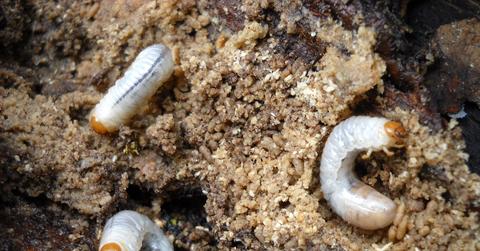Maggots May Offer Missing Link Between Food And Waste
An Australian company has figured out an enticing, sustainable option for the growing aquaponics market. Future Green Solutions is using fly pupae to break down food waste from restaurants, then as feed for fish in the aquaculture industry.
Updated May 23 2019, 9:48 a.m. ET
Maggots may be a game-changer when it comes to putting restaurant waste to good use while also reducing the demand on ocean fishing. One company in West Australia has found an interesting use for fly pupae in the restaurant industry that has nothing to do with health department complaints. Before you start cringing, check this out: Future Green Solutions is using maggots to break down food waste from restaurants, and in turn using the larvae as food for fish being raised in aquaponics arrays.
Substituting ocean-caught fish with maggot meal offers an enticing, sustainable option for the growing aquaculture industry. Luke Wheat, director at Future Green Solutions, was reading about black soldier flies when it occurred to him that these bugs, introduced into Australia in the 1960s, might be the missing link between restaurant waste and healthy, farm-to-table fish. Black soldier flies are many times more efficient at turning food scraps into dirt than red wrigglers, which are currently the most popular compost worm.
The flies are also a great option for high-protein chicken, duck, pig, and fish food. With aquaculture on the rise, this is an extremely inexpensive option for aquaponics companies to feed fish with, which in turn helps nourish the plants growing in the aquaculture and the fish that may be harvested for restaurants.
Wheat told ABC that the larvae can reduce waste by at least 50 percent within 24 hours. When you start adding that up by the ton, you’re looking at a lot of food scraps being kept out the waste stream. And maybe the best part? Maggots can be grown in very little space.
In addition to feeding maggots to animals once consumption is over and the maggots are close to becoming flies, which occurs after approximately two weeks, the pupae’s castings can be use as fertilizer for dirt. For the aquaculture industry in Australia alone, that means keeping hundreds of tons of fish in the ocean.
"The process is giving us a lot of bang for our buck, so it's not just about reducing what we're taking from the ocean and creating a sustainable protein, but we are managing waste at the same time," Wheat told ABC.
